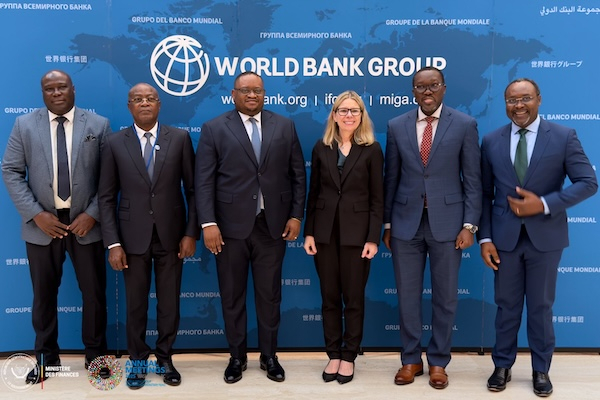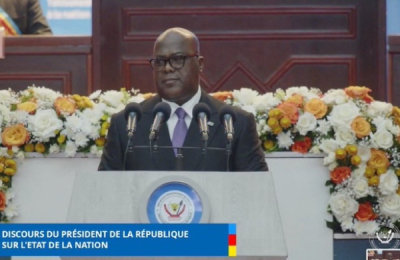During the IMF and World Bank Annual Meetings, the Democratic Republic of Congo’s Finance Minister, Doudou Fwamba, presented a $500 million financing request to the World Bank to support the Lobito Corridor project. According to a statement from the Finance Ministry, the institution has agreed to review the proposal.
In talks with World Bank Managing Director for Operations Anna Bjerde, the minister outlined the government’s vision to spur economic growth along the strategic transport corridor. The discussions focused on strengthening cooperation for the development of two main segments: Tenke–Lubumbashi–Sakania and Tenke–Kolwezi–Dilolo, extending to the Angolan border and the port of Lobito.
Feasibility studies presented in September by a joint European Union–U.S. expert team estimated rehabilitation costs for the Tenke–Kolwezi–Dilolo line at $400–410 million, with $180 million in maintenance costs over ten years. The second phase, covering the Tenke–Lubumbashi–Sakania section and its extension to the Zambian border, would bring total investment to around $1.1 billion.
Fwamba stressed that the project’s economic success depends on expanding energy and mining production and increasing local processing capacity—factors expected to create jobs and stimulate agricultural growth.
Anna Bjerde welcomed Congo’s ongoing economic reforms and highlighted the Lobito Corridor’s strategic value as a regional driver for logistics, energy, and agro-industry.
The Congolese government has pledged to promote cross-border projects similar to those underway in Angola, Zambia, and Tanzania. In April 2025, Prime Minister Judith Suminwa directed the preparation of development projects along the corridor, under the supervision of the Ministers of Transport and Planning and the Mattei Committee experts.
Last September, the World Bank also launched a feasibility study on the corridor’s economic impact, conducted jointly by researchers from the Universities of Lubumbashi and Kolwezi and the Bank’s teams. The study aims to identify investment opportunities along the Congolese section to maximize its economic and social benefits.










